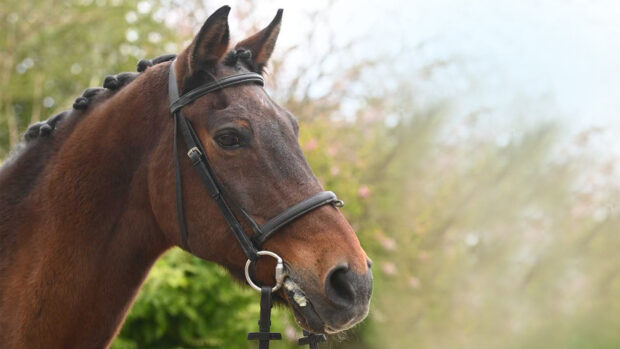The essential first aid all riders need to know if they find themselves dealing with a human dental injury has been highlighted by sporting dentists.
Dentist Stevie Potter, a member of the recently formed UK Sports Dentistry Association, is raising awareness of first aid for dental injuries.
Dr Potter, who is also a rider, spoke of the equestrian-related injuries she has seen – both from falls and on the ground – which is why she is keen to spread the message.
“What you do in the first five minutes of your tooth falling out is crucial,” Dr Potter told H&H, clarifying this is only for adult teeth.
“A brilliant charity, called Dental Trauma UK, has its ‘pick it, lick it, stick it’ campaign running at the moment.
“It involves picking the tooth up by the crown and making sure it’s clean, which you can do with your own spit – lick it with your own tongue, and then putting it back in the hole. Then put a handkerchief or tissue or something in between your teeth, bite down hard on that and get to a dentist or a hospital as soon as you can.”
Dr Potter added that there are many young people in equestrian sports and having that knowledge could make the difference between them keeping a tooth and facing potentially significant dental work.
She also encouraged each rider to take a close-up selfie of their mouth and smile as it is now. This means in the event of injury, professionals working to piece jaws and teeth back together have some reference.
Dr Potter is also strongly encouraging equestrians in risk disciplines, such as point-to-pointing and eventing, to consider wearing a professionally fitted mouthguard.
“You could potentially save yourself from a life-changing dental injury where you lose a front tooth and you’ve got a lifetime of dental work and expense ahead of you,” she said.
“If you go and get a custom-fitted mouthguard and you see a dentist who’s going to design it properly with you – who’s going to talk through with you the sport you’re doing, what you need it to do, and what’s important to you – we can design it so it doesn’t feel any different to putting on a comfy pair of socks and boots.
“We could design that so that it stays in when you have your mouth open and you’re breathing heavily, or you’re trying to communicate – we can make it comfortable.
“The ‘boil in the bag’ ones fall out, they’re not comfortable, they do all of the things that stop people from wearing them. As [DIY mouthguards] are not custom-fitted, the simple truth is they don’t provide the same level of protection, because they are going to move around.
“It would be like putting on a hat where you can fit fingers in between it, and it rattles around on your head. If it comes out on impact, it’s not doing its job. And equally, if it’s sitting on the bedside table because you don’t want to wear it, it’s also not doing its job! It’s got to be comfortable.”
Amateur event rider and cosmetic dentist Jodie Fulton reiterated the first aid points made by Dr Potter, stressing how time is of the essence for reimplantation – “you’ve only really got about 15 minutes to work with” – and to get to a dentist or hospital as soon as possible.
She also added that if a lost tooth needed to be kept safe instead while seeking urgent dental or hospital care, it is recommended that it is kept in an appropriate medium, milk being the ideal.
Dr Fulton said racing is leading the way in terms of mouthguards and that they significantly reduce the risk of concussion injuries to teeth. Her only question would be how well people will tolerate wearing them.
She echoed Dr Potter’s recommendation for mouthguards to be properly made and fitted by a dentist, rather than opting for a “not effective” cheap self-moulded one – warning that having something loose in the mouth when a horse reacts quickly is a choking risk.
For more information on what to do in an emergency, including a self-help video, visit: https://www.dentaltrauma.co.uk/Public.aspx or view the campaign poster [pdf]
- To stay up to date with all the breaking news from major shows throughout 2025, subscribe to the Horse & Hound website
You may also be interested in:

Subscribe to Horse & Hound magazine today – and enjoy unlimited website access all year round

Mouthguards recommended for riders in some sports after new concussion research

Can gumshields help reduce concussion? We ask the experts *H&H Plus*





